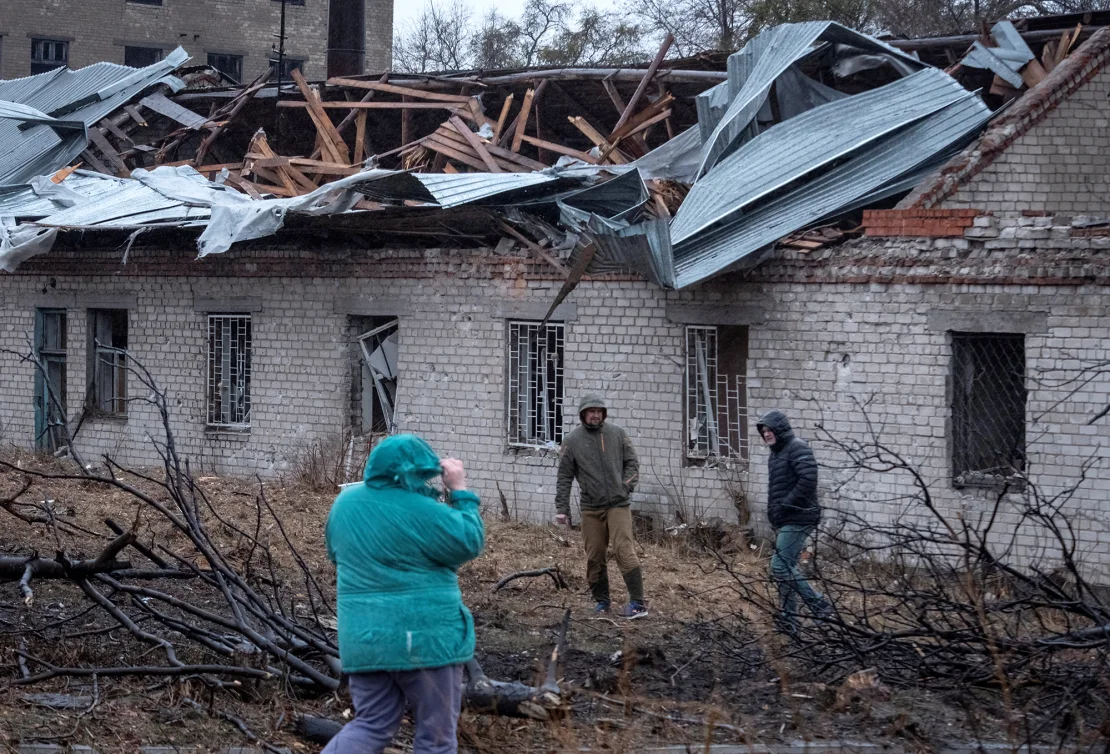Ukraine has accused Russia of launching an intercontinental ballistic missile (ICBM) into its territory, marking a significant escalation in the ongoing conflict. The missile struck Dnipro at around 5 a.m. local time, injuring at least two people and damaging several buildings, including a rehabilitation center.
Ukrainian officials claim the missile was fired from the Astrakhan region in southern Russia, and although the type of missile has not been confirmed, Ukraine’s military asserts it exhibited the flight characteristics of an ICBM. In addition, Ukraine reported that several other missiles, including the X-47M2 Kinzhal and seven cruise missiles, were part of the attack.
While Ukraine insists that Russia launched an ICBM, two Western officials have disagreed, stating that the missile was ballistic but not an intercontinental one. The Kremlin has remained silent on the matter, with its spokesperson, Dmitry Peskov, offering no comment and deferring questions to the Russian military.
Meanwhile, Ukrainian President Volodymyr Zelensky condemned the attack, emphasizing that the use of such advanced missile technology underscores Russian leader Vladimir Putin’s fear and disdain for human life. He described the missile as having the speed and altitude typical of an ICBM.
The missile strike on Dnipro is part of a broader pattern of intensified attacks during the past week, with Ukraine also using longer-range US-made missiles, including the ATACMS, against targets in Russia.

Russia’s Alleged ICBM Strike on Dnipro Marks Major Escalation in Ukraine Conflict
In response, Russia has updated its nuclear doctrine, signaling a potential lower threshold for the use of nuclear weapons. The week’s events, including Ukraine’s missile strikes and Russia’s missile launches, illustrate the increasing volatility of the conflict as it enters its 1,000th day.
ICBMs are long-range missiles designed to travel through space and are capable of striking targets thousands of miles away. They have a minimum range of about 5,500 kilometers (3,400 miles) and are capable of carrying nuclear payloads.
Russia’s potential use of such a missile marks a major escalation, and if confirmed, could shift international perceptions of the war. Ukraine’s ability to defend against such missile threats relies on its use of Patriot missile defense systems, although their limited number and coverage mean that some regions, like Kyiv, are better protected than others.
The Dnipro region, which has frequently been targeted by Russian strikes, is strategically important due to its proximity to the front lines and its role as a hub for internally displaced people. It has become a critical center for both civilian and military efforts, making it a valuable target for Russia.
Despite robust air defenses, the attack caused significant damage to infrastructure, including residential buildings and industrial sites. The ongoing conflict in this region underscores the harsh realities faced by Ukraine as it continues to endure both military aggression and the humanitarian consequences of war.
